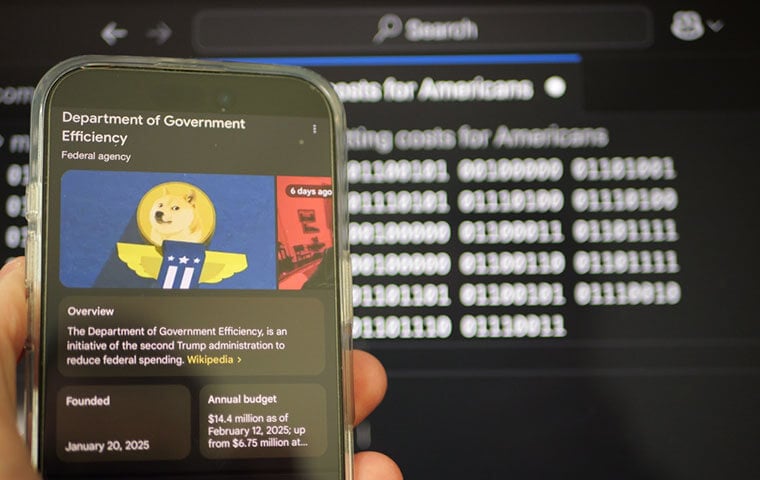 The AFGE union, which brought the case, asked the court to stop disclosure of OPM records to individuals associated with DOGE and require the destruction of any copies of personal information they already have obtained. Image: Matt Fowler KC/Shutterstock.com
By: FEDweek Staff
The AFGE union, which brought the case, asked the court to stop disclosure of OPM records to individuals associated with DOGE and require the destruction of any copies of personal information they already have obtained. Image: Matt Fowler KC/Shutterstock.com
By: FEDweek StaffA second federal court has ruled that Trump administration officials likely violated federal employees’ privacy rights by exposing personally identifiable information held by OPM to DOGE representatives who did not meet the Privacy Act’s standards of having a need to access it.
“The plaintiffs have shown that the defendants disclosed OPM records to individuals who had no legal right of access to those records. In doing so, the defendants violated the Privacy Act and departed from cybersecurity standards that they are obligated to follow,” District Judge Denise Cote of the U.S. District Court for the Southern District of New York held.
“This was a breach of law and of trust. Tens of millions of Americans depend on the Government to safeguard records that reveal their most private and sensitive affairs,” said the ruling, which indicates that an injunction will be issued against OPM and DOGE officials, although the exact terms are still to be decided.
The AFGE union, which brought the case, asked the court to stop disclosure of OPM records to individuals associated with DOGE and require the destruction of any copies of personal information they already have obtained.
It follows a similar ruling from the U.S. District Court for the District of Maryland in a case brought by the NTEU union. In that case, the injunction issued by the court has been stayed by an appeals court pending further action by the lower court.
As in the Maryland case, Judge Cote found that the union had provided “clear evidence that the DOGE agents did not need access to the records disclosed to them, much less the administrative access that they were given.”
She also similarly found that “the defendants ignored many of OPM’s safeguards in connection with the employees brought into OPM to pursue the DOGE agenda . . . DOGE Engineers and other DOGE agents were almost uniformly given administrative access without any need for that access. Such granting of maximum access is exactly the opposite of what the principle of least privilege requires, and was also inconsistent with the principle of separation of duties.”
She added: “The Government has offered no reassurance that it is returning to a regime in which the disclosure of OPM records containing PII is restricted to OPM employees, and to only those OPM employees who have a need for those records in the performance of their OPM duties. Nor is there any indication that the Government has done an adequate audit to identify and mitigate the risks that were created by OPM giving improper access to its records.”
Shutdown Meter Ticking Up a Bit
Judge Backs Suit against Firings of Probationers, but Won’t Order Reinstatements
Focus Turns to Senate on Effort to Block Trump Order against Unions
TSP Adds Detail to Upcoming Roth Conversion Feature
White House to Issue Rules on RIF, Disciplinary Policy Changes
Hill Dems Question OPM on PSHB Program After IG Slams Readiness
See also,
How Do Age and Years of Service Impact My Federal Retirement
The Best Ages for Federal Employees to Retire
FERS Retirement Guide 2025 – Your Roadmap to Maximizing Federal Retirement Benefits

